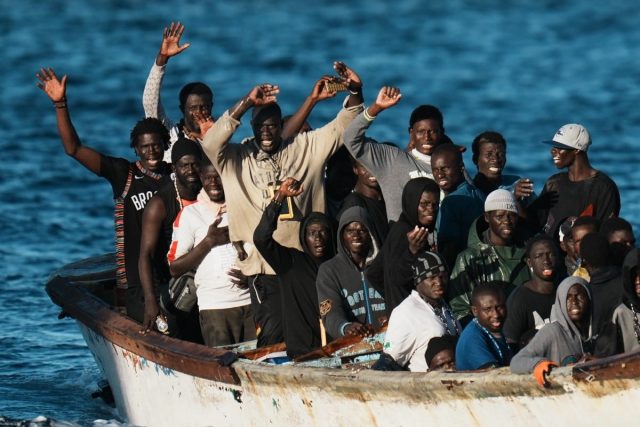
This April 2024 will go down in the short history of the European Union. Finally, the European Parliament, following its agreement with the Council of the Union, submitted the so-called Pact on Asylum and Immigration to debate and vote in plenary. It is a package of up to nine legislative reforms ranging from the reform and updating of fingerprint databases of asylum seekers and illegal immigrants (EURODAC) to a directive regulating reception conditions for applicants for international protection. . .
Until the last moment, the Brussels press, under pressure from NGOs, associations and organisations linked to immigration, promoted the rumour that the European Parliament was not going to approve the Pact, already endorsed by the Council. It was undoubtedly the issue of the week, the month and the year; and together with the disastrous Green Pact, which has devastated the agricultural and livestock sector in many countries, the issue of the legislature.
The radical left, as usual, did not know how to deal with the new pact and made a scene in the Brussels plenary, just when the MEPs had just voted in favour of the first of the texts. At that moment, it was clear to everyone that the texts put to the vote were going to go through. After a few minutes of shouting and ridiculous spectacle, the vote continued.
The Regulations and Directives will be approved in all; with a greater or lesser difference in votes; but there were no special signs of joy because the Pact as a whole leaves everyone unsatisfied. The most radical European left – part of the socialist group, The Left, Greens – clamoured against the reform of the Eurodac regulation and against the rules on the new procedure for border control and verification of the identity of migrants and asylum seekers. They were convinced that they could block the situation or, as the case may be, consolidate the Grand Coalition against the middle and popular classes that they have built with liberals and a substantial part of the European People’s Party during this legislature. They were convinced that their thesis of open doors, papers for all and that the problem of illegal immigration is the border police was going to triumph. Their faces of delusion and anger were evident. But there was no joy on the right side of the House either, because the imposition of compulsory solidarity with migrant relocations that clearly encroaches on national sovereignty is a red – or black – line for many national delegations.
But the truth is that the street has won again. The proximity of the European elections – and the pressure from conservative, patriotic, identitarian and sovereigntist parties that have made border control and the fight against illegal immigration their main banner -; the growing insecurity in European cities; and the fact that the immigration issue breaks the “right-left” scheme, as it is also influenced by whether or not a country is a border country, that is, a country whose borders are Europe’s external frontier. Thus, from Spain to Finland, via Italy, Greece, Hungary, Romania, Poland, France, there are countless member states where forced immigration processes are experienced with particular intensity as they constitute more or less permanent routes of massive and uncontrolled entry of illegal immigrants and asylum seekers.
Why insufficient and disappointing? Mainly because the most important and decisive reform to ensure effective immigration control, the reform of the Return Directive, was taken out of the ‘asylum package’ from the outset, since negotiations are at a standstill and the Commission has been unable to offer an adequate proposal.
In any case, the measures with the capacity to promote returns – rather than internal procedures – are agreements with third countries, and these either do not go ahead, either because of the Commission’s inability or because of the lack of political will of the national governments involved, as in the case of Morocco and Spain; unlike, for example, Italy with Meloni, which is promoting agreements with Tunisia, Egypt or Albania to facilitate returns, for immigration control or even to seek a more or less viable solution to the massive and disorderly immigration traffic jam.
If you like, as this is undoubtedly the key issue this year, I will continue to tell you briefly what this Asylum and Immigration Pact consists of; which measures seem a priori to be good; and which do not. Of course, taking into account the majority opinion of Europeans, who demand effective measures from politicians to bring order to decades of chaos and lack of control.



 Subscribe
Subscribe